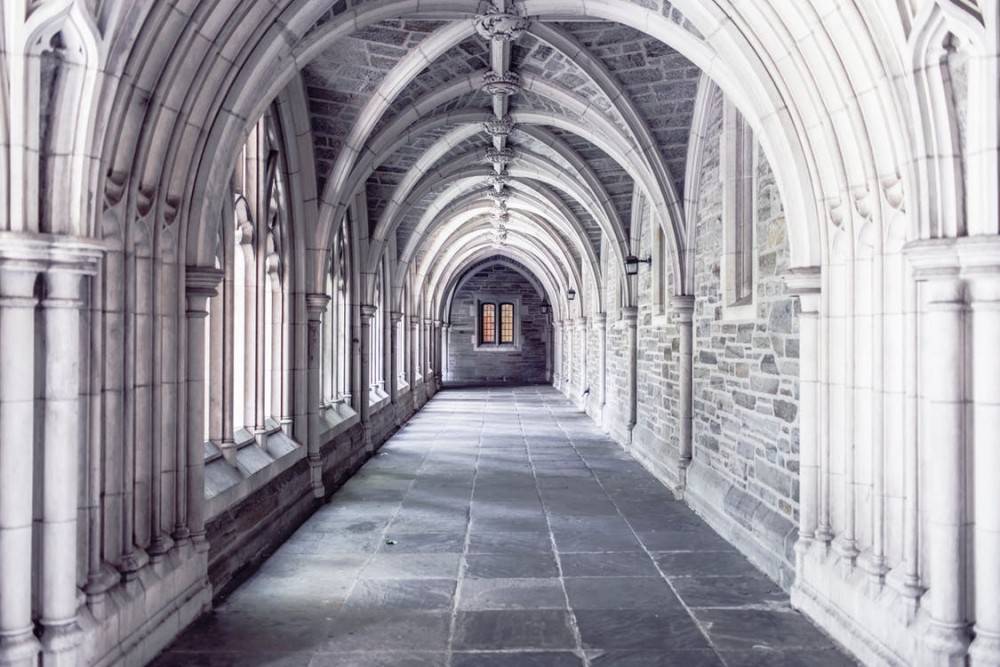Engaging the mystics
While women have historically been bound by family obligations, household chores, or desperate poverty, there have been monasteries throughout history that allowed some to focus on their vocation without those typical pressures.

I am reading the mystics again. I didn’t appreciate them as much the first time. I remember the class, taught by my favorite history professor, Ellen Babinsky, a Marguerite Porete scholar. I took Mysticism 101, more out of love for the teacher than for the subject matter. Older women, wearing flowing skirts, filled the room. They attended seminary as a hobby. At least, it was a hobby in the sense that they were not interested in finding a job at the end of it. Instead, from what I could tell, they went on retreats as their sole vocation. They spent a lot of their time before the lectures comparing the educational offerings, scenery, and food of different monasteries.
I, on the other hand, was a 23-year-old scrapper, working four jobs, trying to get through seminary without too much debt. I couldn’t imagine a day off, much less a spiritual retreat in some exotic location. It seemed like an odd sort of tourism to me, something that only wealthy women whose husbands retired with a healthy pension could enjoy. They were women who needed more intellectual stimulation than a massage, chemical peel, and makeover (is that what people do at spas for extended days?) could offer. So, they retreated, discussed the mystics, then toured the local wineries.
I didn’t understand the culture at the time. It felt foreign and privileged. Like many things that feel perpetually out of my reach, I resented it. But now that I have been to numerous monasteries to lead retreats, it’s my dream to actually attend a spiritual retreat or to stay at a monastery for a couple of days.
I think my attitude shifted when I was talking with a friend, who was an esteemed theologian’s wife. She described their home life—he would get home from work and read for the rest of the night. She would arrive home from work, cook dinner, serve it, do the dishes, help the children with their homework, and get the children ready for bed. All through the evening, she would admonish them, “Don’t bother your father. He’s working.”
My friend detailed all of this with no guile. She saw it as her duty and calling to provide for him so that he could be a great theologian. As she spoke, the (sexist) thought flashed in my head again: I need a wife. And a new appreciation for monasteries arose in me.
While women have historically been bound by family obligations, household chores, or desperate poverty, there have been institutions throughout history where some women could focus on their vocation, art, writing, and intellectual pursuits without those typical pressures. And now I aspire to write in a quiet place, walk the labyrinth, have a meal prepared, have my dishes done, pray, then write some more. But, I still seem to be juggling four jobs and finding it difficult to find a day off.
Yet, I can read the mystics. And that’s what I’ve been doing these days, between scrubbing pots and pans, sweeping the floor, and tending to my work. With the backdrop of my daughter’s Spotify station, and those incessant news alerts, I have been rereading these women, who defied conventions, listened to their visions, and dedicated their lives to their intellectual pursuits. I am listening to extraordinary voices, who managed to escape the mental confines of Augustine, and articulate an understanding of atonement and union with God in completely different ways.
Many monasteries are in trouble. They have not been able to attract younger generations of women, for various reason. And with this reality looming, I long for this space, this thought, and this history, where women could imagine God, write, paint, and allow their souls to engage in this profound union. And so, I will keep reading and allow their voices to travel from those Medieval halls to my kitchen sink. And as the news cycle infuriates me, I will keep echoing Julian of Norwich in my defiance and resistance, "All shall be well, and all manner of thing shall be well."






